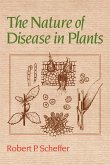Advances in Medicinal and Aromatic Plants
Production, Processing, and Pharmaceutics, 2-volume set
Herausgeber: Shukla, Amritesh C.; Facknath, Sunita; Mandal, Debashis; Montanari, Bernadette
Advances in Medicinal and Aromatic Plants
Production, Processing, and Pharmaceutics, 2-volume set
Herausgeber: Shukla, Amritesh C.; Facknath, Sunita; Mandal, Debashis; Montanari, Bernadette
- Broschiertes Buch
- Merkliste
- Auf die Merkliste
- Bewerten Bewerten
- Teilen
- Produkt teilen
- Produkterinnerung
- Produkterinnerung
Details information on medicinally important plants and their natural habits and habitats, taxonomy, cultivation practices, essential oils, active ingredients, biomolecules, modes of action, drug development, and value additions for marketing purpose. It also covers details like systematic botany, postharvest technology, and more.
Andere Kunden interessierten sich auch für
![Antidiabetic Medicinal Plants Antidiabetic Medicinal Plants]() Antidiabetic Medicinal Plants207,99 €
Antidiabetic Medicinal Plants207,99 €![Evaluation of Different Medicinal Plants in Poultry Nutrition Evaluation of Different Medicinal Plants in Poultry Nutrition]() Navid Hosseini MansoubEvaluation of Different Medicinal Plants in Poultry Nutrition42,99 €
Navid Hosseini MansoubEvaluation of Different Medicinal Plants in Poultry Nutrition42,99 €![Advances in Rice Genetics (in 2 Parts) Advances in Rice Genetics (in 2 Parts)]() Advances in Rice Genetics (in 2 Parts)154,99 €
Advances in Rice Genetics (in 2 Parts)154,99 €![Florida's Best Native Landscape Plants Florida's Best Native Landscape Plants]() Gil NelsonFlorida's Best Native Landscape Plants31,99 €
Gil NelsonFlorida's Best Native Landscape Plants31,99 €![Wild Edible Underutilized Plants Wild Edible Underutilized Plants]() V R MohanWild Edible Underutilized Plants109,99 €
V R MohanWild Edible Underutilized Plants109,99 €![Diseases of Fruit Plants [microform] Diseases of Fruit Plants [microform]]() Diseases of Fruit Plants [microform]15,99 €
Diseases of Fruit Plants [microform]15,99 €![The Nature of Disease in Plants The Nature of Disease in Plants]() Robert P. SchefferThe Nature of Disease in Plants57,99 €
Robert P. SchefferThe Nature of Disease in Plants57,99 €-
-
-
Details information on medicinally important plants and their natural habits and habitats, taxonomy, cultivation practices, essential oils, active ingredients, biomolecules, modes of action, drug development, and value additions for marketing purpose. It also covers details like systematic botany, postharvest technology, and more.
Produktdetails
- Produktdetails
- Verlag: Apple Academic Press Inc.
- Seitenzahl: 882
- Erscheinungstermin: 5. Juli 2024
- Englisch
- Abmessung: 234mm x 156mm
- Gewicht: 1787g
- ISBN-13: 9781774914885
- ISBN-10: 1774914883
- Artikelnr.: 70165324
- Verlag: Apple Academic Press Inc.
- Seitenzahl: 882
- Erscheinungstermin: 5. Juli 2024
- Englisch
- Abmessung: 234mm x 156mm
- Gewicht: 1787g
- ISBN-13: 9781774914885
- ISBN-10: 1774914883
- Artikelnr.: 70165324
Amritesh C. Shukla, PhD, DSc, is currently Professor in the Department of Botany at the University of Lucknow, India. Dr. Shukla has more than 20 years of experience in natural products and drug development. He has standardized various techniques, such as MSGIT, MDKT, MS-97, and Modified NCCLS (2002-03) and has developed six commercial herbal formulations; he is credited with several US, UK, Japan, and Indian patents. He has published over 75 research papers and 15 articles and book chapters as well as several books. He has handled many externally funded research projects. He is a fellow of five national and international societies and also a Visiting Professor at the University of British Columbia, Canada, and the University of Mauritius. In addition, he is working as chief editor, associate editor, and editorial board member of many internationally reputed journals, including the American Journal of Food Technology, Journal of Pharmacology and Toxicology, and the Research Journal of Medicinal Plants, among others. He was an invited scientist for countries, including Germany, China, Switzerland, USA, Australia, and Korea. Dr. Shukla has received a number of awards and acknowledgments for his work in his field. His research interests include bioprospection of medicinal and aromatic plants, natural products, pesticidal formulation for postharvest pests and diseases, and drug development and testing. Sunita Facknath, PhD, is a Professor engaged in teaching and research in agricultural technology for the past 25 years at the University of Mauritius. She had published more than 100 research papers, articles in reputed journals, and conference proceedings. In addition, she has dealt with 20 research projects funded by important renowned institutes and agencies, including the World Bank, European Union, International Atomic Energy Agency, ACU, African Union, Climate and Development Knowledge Network (CDKN) and Development Finance International (DFI) , etc. She is a consultant agriculturist for many public-private sector organizations and NGOs based in Mauritius (FAO, EUCDP, UNDP, UNEP-Mauritius, FANRPAN, Mauritius Research Council, Govt. of Mauritius; SGS Co Ltd., DDS and MACOSS etc.). She guided 15 MPhil and PhD students and also has profound administrative experience from the University of Mauritius and also at multiple national and international bodies, including the African Network of Research on Bruchids, Mauritius Council for Social Services (MACOSS), African Regional Programme in Insect Science (ARPIS) Academic Board, Fishermen Investment Trust, Ministry of Fisheries and Rodrigues, National Biosecurity Technical Advisory Committee, Mauritius Standards Bureau Committee, National Marine Biotechnology Advisory Council, National Ocean Knowledge Cluster Advisory Council, UoM Senate, etc. Debashis Mandal, PhD, is Assistant Professor in the Department of Horticulture, Aromatic and Medicinal Plants at Mizoram University, Aizawl, Mizoram, India. He was previously Assistant Professor at Sikkim University, India, and has published many research papers in journals and book chapters. He has also published several books. In addition, he is working as a member in the Workgroup Lychee, Longan, and Other Sapindaceae Fruits of the International Society for Horticultural Science, Belgium, as well as with other ISHS sections on tropical-subtropical fruits and organic horticulture and on the Commission Quality and Postharvest Horticulture. Currently he is also working as Editor-in-Lead (Horticulture) for the International Journal of Bio Resources & Stress Management (IJBSM). Dr. Mandal is an editorial advisor in Horticulture Science to Cambridge Scholars Publishing, UK, and a regular reviewer for journals such as Fruits, HortScience, Acta Physiologica Plantarum, and African Journal of Agricultural Research. Further, he is a consultant horticulturist to the Department of Horticulture & Agriculture (Research & Extension), Government of Mizoram, India, and Himadri Specialty Chemicals Ltd. He is also handling externally funded research projects. He acted as convener or co-convener for several conferences and symposia as well. Bernadette Montanari, PhD, is an ethnobotanist, ethnobiologist, with a PhD in ethnobiology from the School of Anthropology and Conservation, University of Kent, UK. Her research focuses on community development and women's social enterprise, ethnomedicine, traditional ecological knowledge, essential oils, natural resource management, governance, policies, and social justice. Recipient of two major EU grants, she was a postdoctoral visiting scholar at the Social Dimensions of Environmental Policy (SDEP), University of Illinois at Urbana-Champaign, USA; at the International Institute of Social Studies (ISS), Erasmus University, Rotterdam, Netherlands; and recently at the Centre for Research in Anthropology (CRIA), University Institute of Lisbon, Portugal. She has published several book chapters and research papers in reputed international journals. Dr. Montanari is a member of the Centre for Biocultural Diversity, UK; of the Interdisciplinary Institute for Social Sciences (2i2s), Fes, Morocco; and committee member of the National Conservatory of Aromatic and Medicinal Plants and the French Society of Ethnopharmacology, France. In addition, she is a member in several IUCN research groups: SULI-IUCN; Species Survival Commission (SSC) and Commission on Environmental, Economic and Social Policy (CEESP); IPACC, North Africa; IUCN Gender; IUCN Plant Use Group; IUCN CEESP Governance, Equity and Rights Network 2021-2025; and Local Economies, Communities and Nature Specialist Group (LECN), among others.
VOLUME 1 1. Achillea (Yarrow): Diversity, Trade Potential, and
Ethnomedicinal Uses 2. Acorus calamus L. (Sweet Flag): Bioactive Compounds,
Medicinal Properties, and Biological Activity 3. Ocimum Spp. (Basil): An
Incredible Plant 4. Dioscorea Spp: Medicinal Plant with Pharmaceutical Uses
5. Eucalyptus Spp.: A Wonder Tree 6. Commiphora Spp. (Guggul): A Wonder
Ayurvedic Drug 7. Kaempferia galanga L. (Aromatic Ginger): A High Potential
Zingiberaceae Species 8. Lavandula Spp. (Lavender): A Herb More Than Just a
Relaxing Scent VOLUME 2 1. Mentha Spp.: A Miraculous Plant with
Pharmaceutical Uses 2. Neem: A Drug Cabinet of Mother Nature 3. Patchouli
(Pogostemon cablin Benth.) A Comprehensive Review of Medicinal Aromatic
Plant with Industrial Utilization 4. Pippali (Piper longum L.): A Plant
with Versatile Pharmaceutical Uses 5. Pomegranate (Punica cranatum): A
Medicinal and Commercial Perspective 6. Rhubarb (Rheum Sp. ): A Rare and
Endangered Medicinal Plant of the Himalaya 7. Rose (Rosa Sp. ): More Than
Beautiful: Exploring the Therapeutic Properties of Rose Species 8. Safed
Musli: A Critical Review on Bioactive Compounds, Medicinal Properties, and
Biological Activity 9. Bishop's Weed or Ajwain (Trachyspermum ammi Linn.):
A Traditional Medicinal Plant with Pharmacological Importance,
Ethno-Botanical Uses, and Nutritional Benefits for Quality Life Improvement
10. Tinospora cordifolia (Willd.) Miers: A Review on Medicinal Aromatic
Plant with Industrial and Therapeutical Utilization 11. An Emerging Gift of
Nature and Bioprospection Towards the Development of Novel Herbal
Formulation, Nutraceuticals, and Cosmetics
Ethnomedicinal Uses 2. Acorus calamus L. (Sweet Flag): Bioactive Compounds,
Medicinal Properties, and Biological Activity 3. Ocimum Spp. (Basil): An
Incredible Plant 4. Dioscorea Spp: Medicinal Plant with Pharmaceutical Uses
5. Eucalyptus Spp.: A Wonder Tree 6. Commiphora Spp. (Guggul): A Wonder
Ayurvedic Drug 7. Kaempferia galanga L. (Aromatic Ginger): A High Potential
Zingiberaceae Species 8. Lavandula Spp. (Lavender): A Herb More Than Just a
Relaxing Scent VOLUME 2 1. Mentha Spp.: A Miraculous Plant with
Pharmaceutical Uses 2. Neem: A Drug Cabinet of Mother Nature 3. Patchouli
(Pogostemon cablin Benth.) A Comprehensive Review of Medicinal Aromatic
Plant with Industrial Utilization 4. Pippali (Piper longum L.): A Plant
with Versatile Pharmaceutical Uses 5. Pomegranate (Punica cranatum): A
Medicinal and Commercial Perspective 6. Rhubarb (Rheum Sp. ): A Rare and
Endangered Medicinal Plant of the Himalaya 7. Rose (Rosa Sp. ): More Than
Beautiful: Exploring the Therapeutic Properties of Rose Species 8. Safed
Musli: A Critical Review on Bioactive Compounds, Medicinal Properties, and
Biological Activity 9. Bishop's Weed or Ajwain (Trachyspermum ammi Linn.):
A Traditional Medicinal Plant with Pharmacological Importance,
Ethno-Botanical Uses, and Nutritional Benefits for Quality Life Improvement
10. Tinospora cordifolia (Willd.) Miers: A Review on Medicinal Aromatic
Plant with Industrial and Therapeutical Utilization 11. An Emerging Gift of
Nature and Bioprospection Towards the Development of Novel Herbal
Formulation, Nutraceuticals, and Cosmetics
VOLUME 1 1. Achillea (Yarrow): Diversity, Trade Potential, and
Ethnomedicinal Uses 2. Acorus calamus L. (Sweet Flag): Bioactive Compounds,
Medicinal Properties, and Biological Activity 3. Ocimum Spp. (Basil): An
Incredible Plant 4. Dioscorea Spp: Medicinal Plant with Pharmaceutical Uses
5. Eucalyptus Spp.: A Wonder Tree 6. Commiphora Spp. (Guggul): A Wonder
Ayurvedic Drug 7. Kaempferia galanga L. (Aromatic Ginger): A High Potential
Zingiberaceae Species 8. Lavandula Spp. (Lavender): A Herb More Than Just a
Relaxing Scent VOLUME 2 1. Mentha Spp.: A Miraculous Plant with
Pharmaceutical Uses 2. Neem: A Drug Cabinet of Mother Nature 3. Patchouli
(Pogostemon cablin Benth.) A Comprehensive Review of Medicinal Aromatic
Plant with Industrial Utilization 4. Pippali (Piper longum L.): A Plant
with Versatile Pharmaceutical Uses 5. Pomegranate (Punica cranatum): A
Medicinal and Commercial Perspective 6. Rhubarb (Rheum Sp. ): A Rare and
Endangered Medicinal Plant of the Himalaya 7. Rose (Rosa Sp. ): More Than
Beautiful: Exploring the Therapeutic Properties of Rose Species 8. Safed
Musli: A Critical Review on Bioactive Compounds, Medicinal Properties, and
Biological Activity 9. Bishop's Weed or Ajwain (Trachyspermum ammi Linn.):
A Traditional Medicinal Plant with Pharmacological Importance,
Ethno-Botanical Uses, and Nutritional Benefits for Quality Life Improvement
10. Tinospora cordifolia (Willd.) Miers: A Review on Medicinal Aromatic
Plant with Industrial and Therapeutical Utilization 11. An Emerging Gift of
Nature and Bioprospection Towards the Development of Novel Herbal
Formulation, Nutraceuticals, and Cosmetics
Ethnomedicinal Uses 2. Acorus calamus L. (Sweet Flag): Bioactive Compounds,
Medicinal Properties, and Biological Activity 3. Ocimum Spp. (Basil): An
Incredible Plant 4. Dioscorea Spp: Medicinal Plant with Pharmaceutical Uses
5. Eucalyptus Spp.: A Wonder Tree 6. Commiphora Spp. (Guggul): A Wonder
Ayurvedic Drug 7. Kaempferia galanga L. (Aromatic Ginger): A High Potential
Zingiberaceae Species 8. Lavandula Spp. (Lavender): A Herb More Than Just a
Relaxing Scent VOLUME 2 1. Mentha Spp.: A Miraculous Plant with
Pharmaceutical Uses 2. Neem: A Drug Cabinet of Mother Nature 3. Patchouli
(Pogostemon cablin Benth.) A Comprehensive Review of Medicinal Aromatic
Plant with Industrial Utilization 4. Pippali (Piper longum L.): A Plant
with Versatile Pharmaceutical Uses 5. Pomegranate (Punica cranatum): A
Medicinal and Commercial Perspective 6. Rhubarb (Rheum Sp. ): A Rare and
Endangered Medicinal Plant of the Himalaya 7. Rose (Rosa Sp. ): More Than
Beautiful: Exploring the Therapeutic Properties of Rose Species 8. Safed
Musli: A Critical Review on Bioactive Compounds, Medicinal Properties, and
Biological Activity 9. Bishop's Weed or Ajwain (Trachyspermum ammi Linn.):
A Traditional Medicinal Plant with Pharmacological Importance,
Ethno-Botanical Uses, and Nutritional Benefits for Quality Life Improvement
10. Tinospora cordifolia (Willd.) Miers: A Review on Medicinal Aromatic
Plant with Industrial and Therapeutical Utilization 11. An Emerging Gift of
Nature and Bioprospection Towards the Development of Novel Herbal
Formulation, Nutraceuticals, and Cosmetics

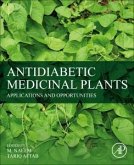
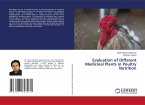
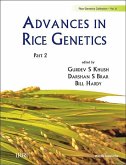
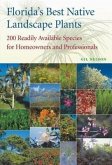
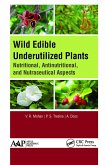
![Diseases of Fruit Plants [microform] Diseases of Fruit Plants [microform]](https://bilder.buecher.de/produkte/65/65632/65632326m.jpg)
